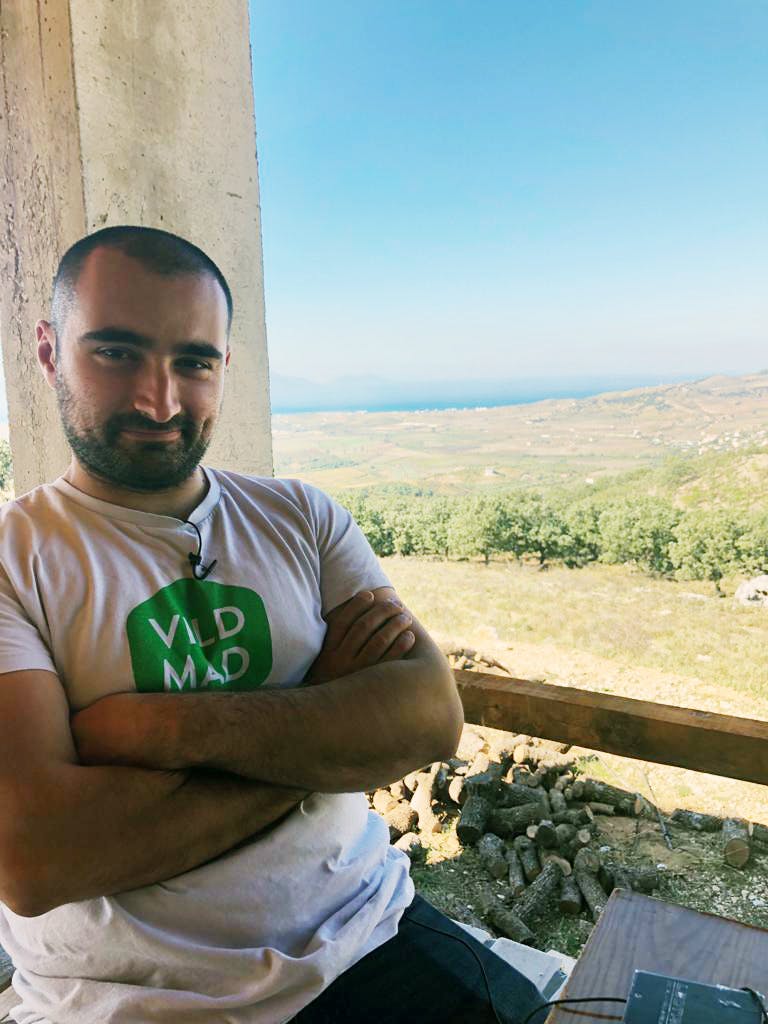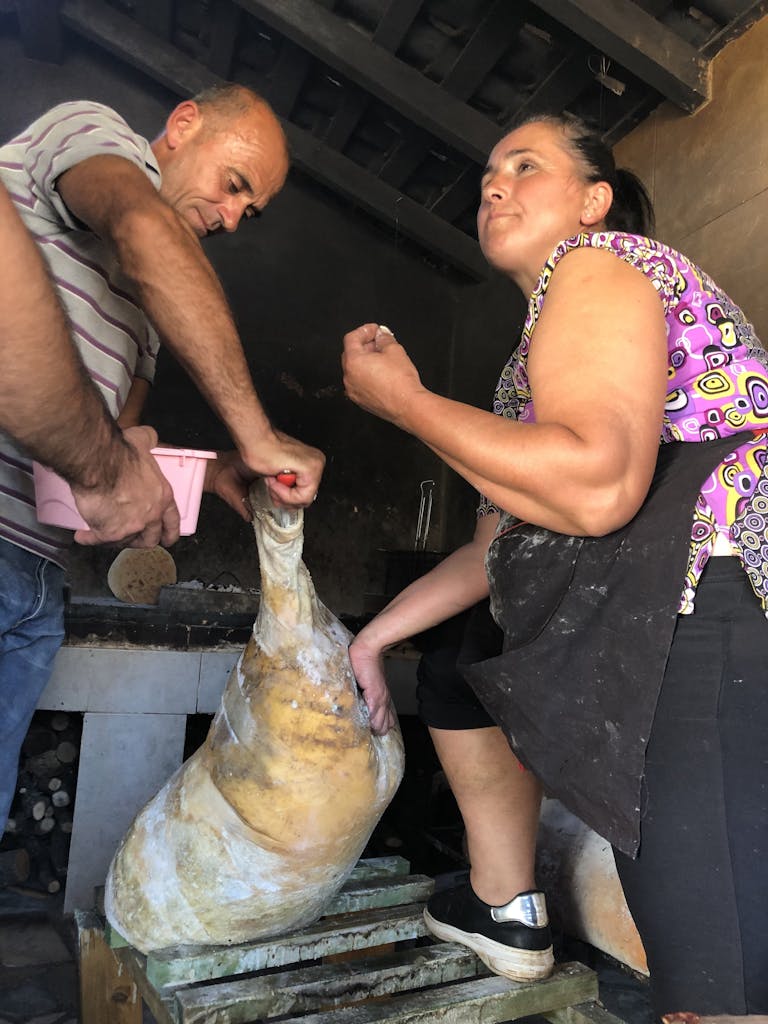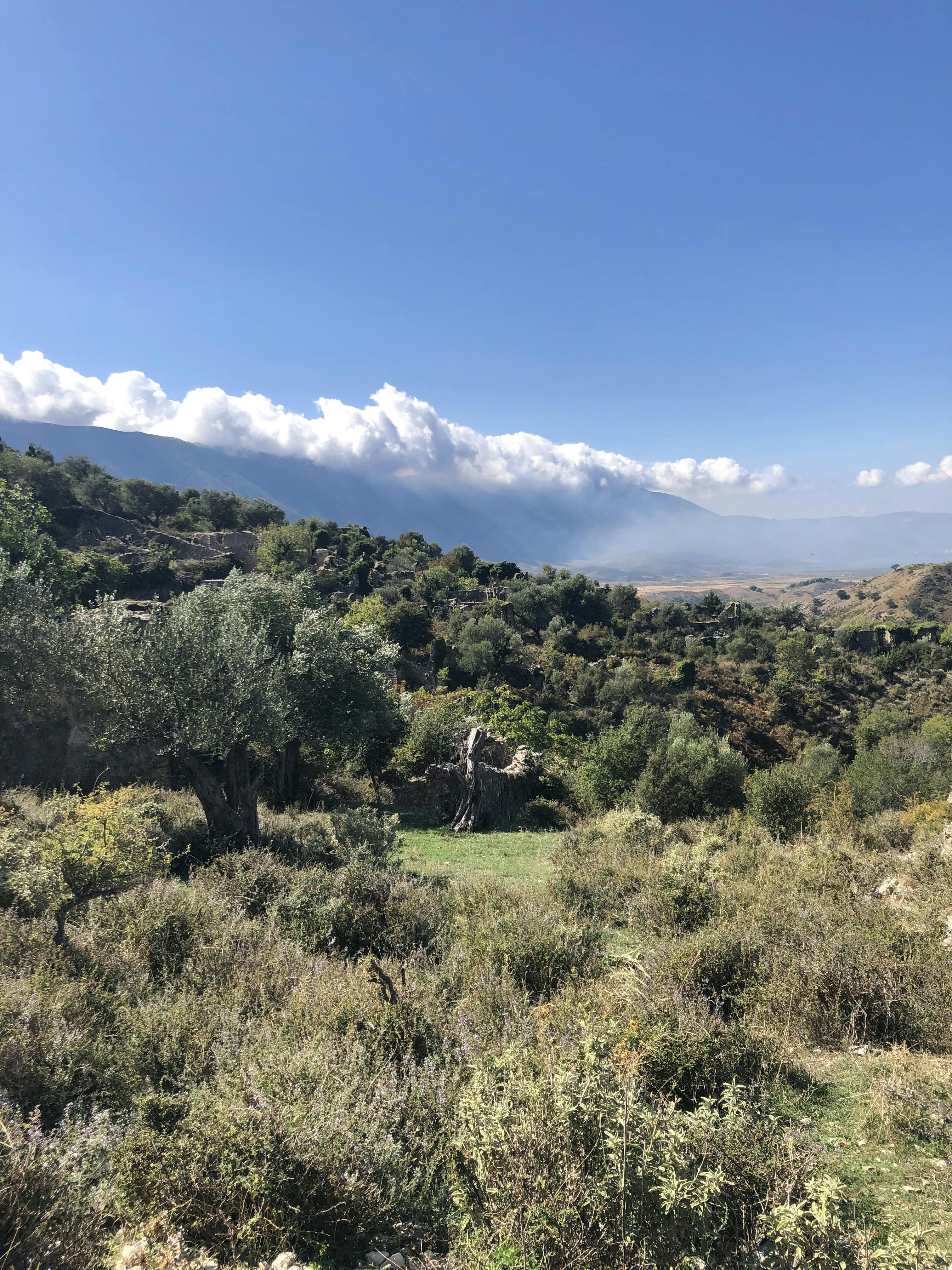How Can S.A.L.T. Lab Radio Open Your Eyes to the Enticing Albania?
On my first, and as yet only, trip to Albania, I took a fast ferry from Greece’s Corfu to the port town of Sarande, probably best known as the gateway to Butrint National Park. We took a bus from the port and found ourselves in an ancient, still-being-excavated civilization hard by the Mediterranean Sea. Now a UNESCO Heritage Site, Butrint was, some 3,000 years ago, home to Greek colonists first, and later to the Romans (and even a bishop or two). It’s considered one of the most spiritually rich archeological sites in the Mediterranean, and yet what made it worth the trek to Albania is that it’s equal parts nature preserve with a dash of the historic culture of the ruins.
Despite being not quite finished in terms of excavation, and nowhere near as famous as other Mediterranean sites like Naples’ Pompeii and Turkey’s Ephesus, Butrint is a placid, peaceful place. It wasn’t the ruins that so much called out to me as the setting, with its salt marshes, wetlands, freshwater lakes, 1,200 different animals and plants, and hills to climb, where you could just sit, survey the landscape, and breathe.
The big downside? I spent so much time absorbing quiet and peace that I needed to rush to catch the last bus to the ferry. And, as such, the closest I got to a culinary adventure was sipping from a bottle of Birra Korça while waiting for the bus back to Sarande.
I was thinking about that trip yesterday, after having listened to “100 Layers of Rays of the Sun: An Albanian Expedition.” On the podcast, the second in a series of culinary adventures that take us to the Mediterranean’s most enticing destinations, Adam Sachs, host of S.A.L.T. Lab Radio’s series of podcasts and director of Silversea Cruises S.A.L.T. (Sea and Land Taste), helped open my eyes to an entirely different, and delicious side of Albania.
Listening to the podcast makes me long to go back to Albania, in search of an experience that through telling the stories about its native culinary traditions, really brings the country to life.

An Albanian-American Chef at Copenhagen’s Noma is On a Mission
In conversation with Sachs on the “100 Layers of Rays of the Sun: An Albanian Expedition,” we meet American-Albanian chef Fejsal Demiraj. Demiraj is a sous chef at Copenhagen’s Noma, one of the world’s most elite restaurants. In his few spare bits of time, Demiraj, with pal Nikolin Kola and others, travels back to Albania to explore his heritage through the food he grew up with. Demiraj and Kola have founded RRNO, which, they explain, means “‘to live on’ in the old Albanian language. RRNO, established by a group of chefs in Albania, Kosova and beyond, who are strongly passionate about sharing the stories of Albanian cuisine worldwide.”
Throughout the podcast, Sachs and Demiraj have a great conversation about what lures this chef back to an ancestral home the New Yorker didn’t even really know. They discuss what drives him to understand, as a chef, particularly but not exclusively, how that heritage is wrapped around food and familial tradition.
It doesn’t matter if you’re not all that familiar with Albania, located between the Adriatic Sea, Montenegro, Kosovo, the Republic of North Macedonia and Greece. You’ll find the conversation as fascinating as I did.

Here’s What We Found Fascinating
Here are the big takeaways that intrigued me in “100 Layers of Rays of the Sun: An Albanian Expedition.” We hope they’ll tempt you into listening for yourself.
North Korea? “Albania was the North Korea of Europe for several decades,” Demiraj says. “Now this young developing country, which is only 30 years old, kind of gets a bad rap in these movies and stuff. And I feel like, well that’s kind of BS. Can there be another voice for Albanians? Yes. So how can I do that? I’m a chef, I’m a professional chef, and I want to discover my roots. And if I can apply my knowledge and my interest in discovering these roots, why can’t we just work on this line of thought and say, okay we are very rich in gastronomy. We have a very rich culture. And so maybe we can expand upon this.”
A Passion for Spreading the Word About Albania: Whatever time Fejsal can spare from his duties at Noma, Sachs tells us, he flies to Albania where his family goes back generations. He travels there in the hopes of spreading the word about Albanian cuisine through RRNO. Fejsal and Nik travel extensively over unpaved roads, knocking on doors, and looking to unlock their country’s greatest culinary secrets. In the last year, Fejsal and Nik have visited more than 700 villages together. They’ve spent thousands of hours on the road, and they’re not done yet.
Albania’s Gastronomic Movement: Fejsal and Nik, along with the latter’s brother Bledar, who owns a restaurant in Albania’s capital of Tirana, founded RRNO as a gastronomic movement. Fejsal says in the podcast: ” The effort started as a personal project and a personal desire to discover my roots here in Albania. Because being an Albanian born in America, you hear stories of the motherland and you have Albanian community. And you may have the longing to discover, you may not. So being a chef and kind of reaching a point in my career where I have the need to work on something for myself, I’m thinking, okay maybe I can just travel a bit and discover, and go to villages, isolated areas, and see, are there traditions which we can discover that many people don’t know about? Are there traditions which are going to be lost, that are being lost? And this was the kind of inspiration for it. And so it still is what drives the expedition, which is to discover traditions and preserve them.”
Here’s Why Fejsal Grew Up in the Bronx, Not Albania! One reason Fejsal is here is, Sachs tell us, “is because for decades, the idea of sharing Albanian culture from the inside out was impossible. During the rule of Enver Hoxha, which lasted from 1944-1985, Albania became increasingly cut off from the world. Fejsal’s family ultimately fled Hoxha’s brutal dictatorship, settling in the Bronx in the 1960’s. Fejsal’s expeditions pay homage to his grandparents. He wants to make them proud by doing what they would have never imagined possible.”
And, Fejsal says, ” they wouldn’t have been able to see a future for the country based on the way they left it. They escaped a country which — where religion was abolished, where god didn’t exist, belief in the party was above all. Your own land turned into a concentration camp, your animals were taken. You were forced to work on your own land to serve the government and you were fed three spoons of flour and water a day. And you lost — you know, you lost all ownership of everything. And my grandfather’s house was burned down, my grandfather’s father was shot when he was the age of 16. He was an orphan. And then at that young age he was — he felt like he was forced to defend his land against this terrible regime.”

Loving Fli: And you will know, if you have listened to the first episode of S.A.L.T. Lab Radio’s podcast, an in-depth conversation with chefs (and winemakers) from the border of Italy and Slovenia, you’re going to learn about traditional dishes that ooze the culture. In this case, Fejsal shares his love for fli. ” So fli — fli in my opinion embodies the national dish of Albanians. It’s a dish that I believe almost every Albanian can associate with no matter where in the world you are. It’s a dish that personally reminds me of my grandmother and her cooking and her care and her love. And I believe that’s the same for every other Albanian that can associate with it. It is quite complex. It’s deceptively complex. It requires the patience of a Jedi to focus on this. And who would care more about serving the family and making sure the family is well fed besides a grandma who does the work for free, you know? This is the perfect — it’s quintessential to — honestly for me it’s like when I think of my grandma, it’s fli. It’s over 1,000 years old, this dish.”
And here’s where we can all relate to Fejsal, even those of us who aren’t Albanian: “Well I grew up eating fli, so it reminds me of my grandmother. She used to make it when I was a child. And it’s something that brought everyone together. And I think this is something that you can say for food in general. I mean, it does bring family together. It’s a very special time where everyone can eat together. And the amount of care that goes into this food translates to, let’s say the love of the family, or something you can only equate to a grandmother having. So it’s this love for sure. You know, families are nurtured off of this.”
To learn more about Fejsal and Nik’s expeditions, visit www.rrno.al, and follow them on Instagram @AlbanianExpedition.
